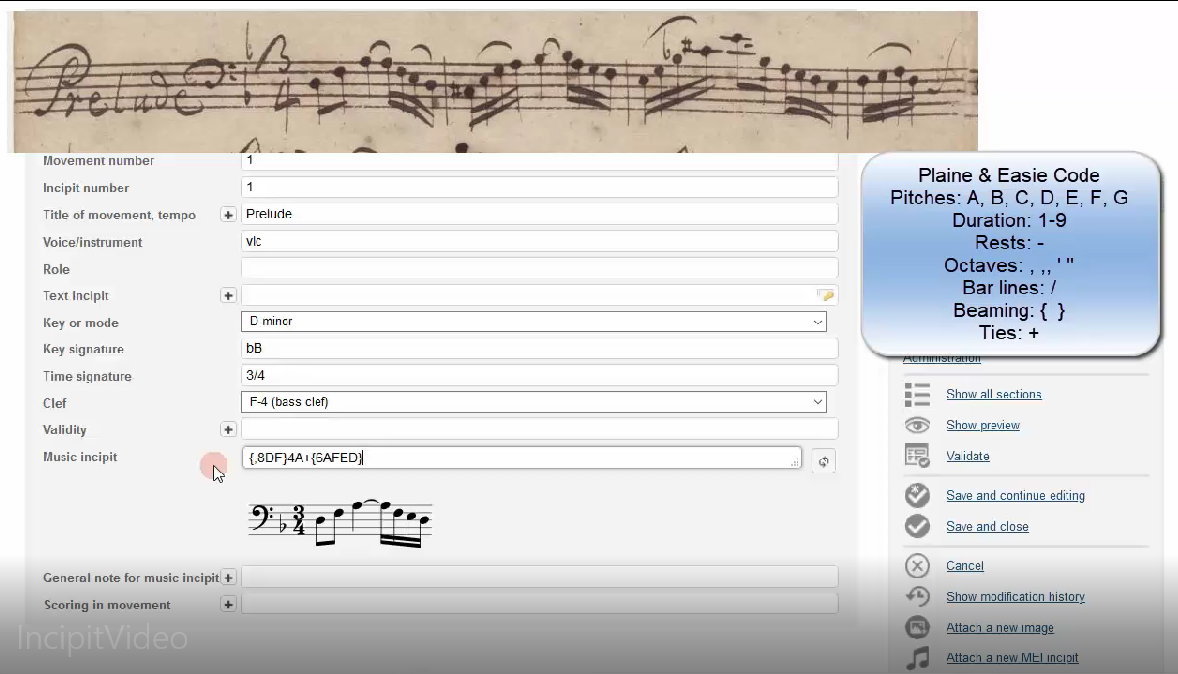The following was originally published on the RISM blog (CC BY-NC-SA 4.0)(link is external):
 We are pleased to announce a new tutorial from the RISM Editorial Center(link is external) in cooperation with the U.S. RISM Office at Harvard University(link is external).
We are pleased to announce a new tutorial from the RISM Editorial Center(link is external) in cooperation with the U.S. RISM Office at Harvard University(link is external).
This tutorial(link is external) focuses on entering music incipits in RISM’s cataloguing program, Muscat(link is external), using the Plaine & Easie Code.
The Plaine & Easie Code is a library standard that is maintained by IAML, the International Association of Music Libraries, Archives and Documentation Centres, and by RISM. It corresponds to MARC21 field 031(link is external).
RISM uses Plaine & Easie to encode music incipits, or the first few notes of a piece. This simplified but standardized way of representing notation ensures that incipits can be searched, found, and compared across sources throughout the RISM catalogue(link is external). For an example of a RISM record with incipits, see this record for a string quartet by Johann André(link is external).
The new tutorial demonstrates the steps by which RISM cataloguers can add music incipits to their records when they are cataloguing using Muscat. At the end of the video, we briefly show a way to encode Plaine & Easie if you are working with programs outside of Muscat.
The music incipits are available for research as well. All of the RISM records can be downloaded for free from the RISM catalogue’s Data page(link is external), and you will find the music incipits (more than 1.7 million of them) in the 031 field.
Music incipits are a valuable addition to any RISM record and should be added whenever cataloguing time and resources allow. We hope that this video gives contributors an overview of how the code works, and encourages them to create their own incipits. Please contact us(link sends e-mail) if you would like to add subtitles in a different language.
Christina Linklater and Jennifer Ward
- Zum Verfassen von Kommentaren bitte Anmelden.

